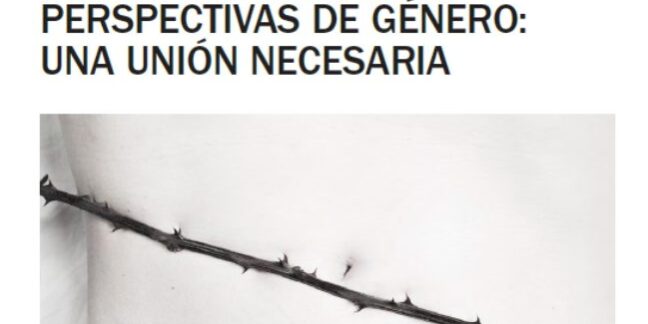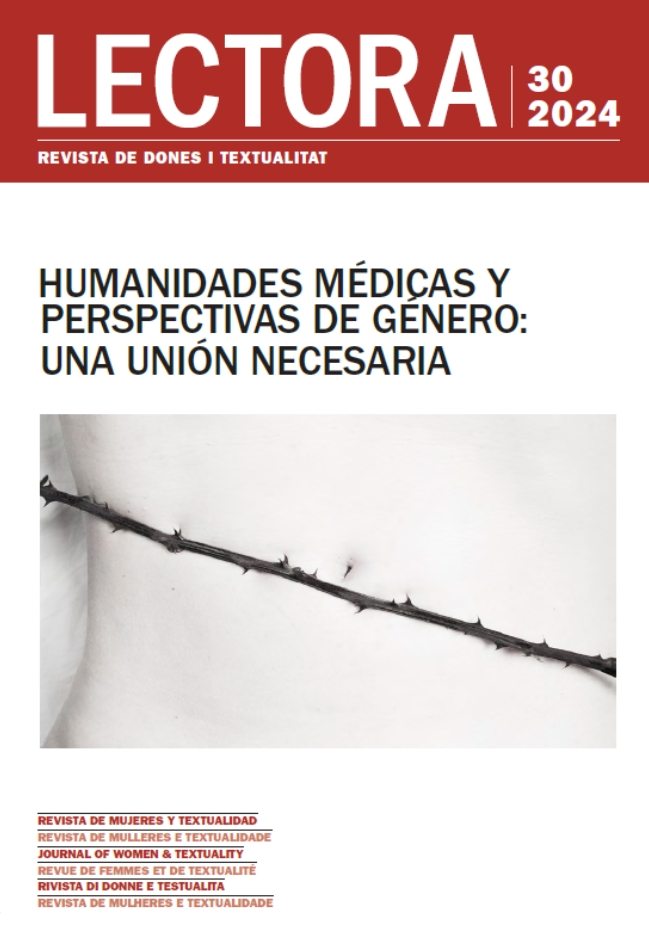Humanidades Médicas y Perspectivas de Género: Una unión necesaria | Medical Humanities and Gender Perspectives: A Necessary Marriage. Special issue LECTORA: Journal of Women and Textuality, 30 (2024)
The field of the Medical Humanities bridges the traditional gap between what C. P. Snow called the “two cultures” (1961): the sciences on the one hand and the arts and humanities on the other. This cross-fertilisation has not only contributed—and continues to contribute—to making doctors more empathic and communicative, but it has also helped them understand the lived experience of illness by listening to the voices of patients, often through poetry, memoirs and art produced by artists and writers that happen to be (or have been) ill. Hence, in their inception, the Medical Humanities were, basically, addressed at producing better and more humane doctors, which resulted in the inevitable instrumentalisation of the humanities, generally perceived as a tool at the service of the biomedical sciences. This aim—noble and necessary as it is—is far from accomplished, though.
However, we can go a step further and demand a more balanced interaction between the health sciences and the different areas of the humanities and the arts (2016). The Medical Humanities should aim to exist in the contact zone between areas of knowledge that have been traditionally separated, hence becoming a third space, so to speak, where new ways of understanding and experiencing illness and health are possible (González-Arias and Swain, 2024). However, for such a field to be revolutionary, gender should be considered a necessary—urgent even—point on its agenda. The history of medicine abounds in episodes that have not taken gender to be a valid category of analysis, which has resulted in the misdiagnosis and silencing of women in the clinical space.
The aim of this special issue of LECTORA is to make visible the different ways in which gender asymmetries have influenced the supposed objectivity of medical knowledge throughout history, contaminating our contemporary social perception, and lived experience, of illness. To that end, this dossier showcases the need for a systematic presence of the gender perspective in biomedical research as well as in the cultural representation, and social perception, of corporeal pathologies and mental-health issues. As well as scholarly articles, this special issue also contains a personal essay and creative works.
Works Cited
Álvarez, Pablo (2022), “El HUCA revisa sus pautas de humanización”, La Nueva España, 26 April 2022: 16.
González-Arias, Luz Mar and Kelley Swain (2024), “Poetry for Rewilding the Medical and Health Humanities”, The Lancet 404.10452: 516-517. Published online: 22/05/2024.
Snow, C. P. (1961), The Two Cultures and the Scientific Revolution, Cambridge, Cambridge UP.
Whitehead, Anne and Angela Woods (eds.) (2016), The Edinburgh Companion to the Critical Medical Humanities, Edinburgh, Edinburgh UP.


